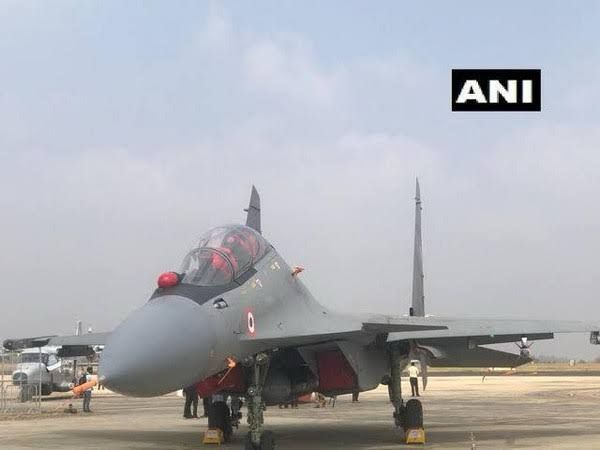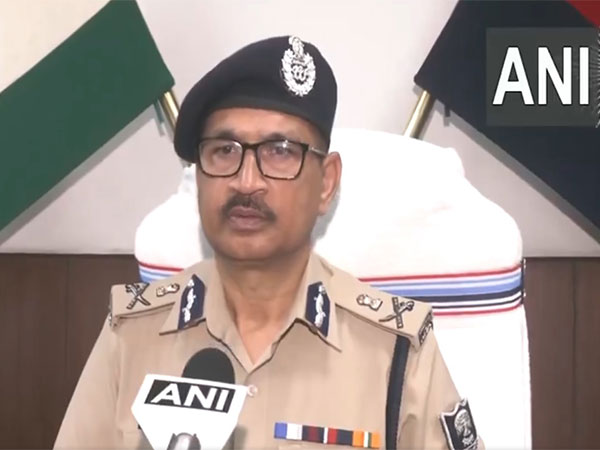
"India's water was going out, will now come to country's use...": PM Modi refers to stance on Indus Water Treaty amid tensions with Pakistan
May 06, 2025
New Delhi [India], May 6 : In a veiled message to Pakistan over its support to cross-border terrorism, Prime Minister Narendra Modi on Tuesday referred to India suspending the Indus Water Treaty following the Pahalgam terror attack and said the water on which India had a right was earlier going beyond its borders but "now it will come to use in the country".
Speaking at the ABP Network India@2047 Summit, the Prime Minister also referred to the efforts of his government for inter-linking of rivers which will benefit the farmers of the country.
India took a slew of measures, including putting the Indus Water Treaty in abeyance to a send a strong message to Pakistan for its support to cross-border terrorism after the Pahalgam terror attack.
"Well these days there is a lot of discussion about water in the media. Pehle Bharat ke haq ka paani bhi bahar ja raha tha...ab Bharat ka paani, Bharat ke haq me bahega, Bharat ke haq mai rukega aur Bharat ke hi kaam aayega. (Earlier, the water on which India had a right was going out, now India's water will remain within the nation, serving its rightful purpose for the country's development)," PM Modi said.
Tensions have risen between India and Pakistan following the Pahalgam terror attack in which 25 Indian nationals and one Nepali citizen were killed.
India has said that perpetrators will face severe punishment.
Following the terror attack, India has taken strong countermeasures against Pakistan for its support of cross-border terrorism.
India decided to hold the Indus Waters Treaty of 1960 in abeyance until Pakistan credibly and irrevocably abjures its support for cross-border terrorism.
The Treaty allocates the Western Rivers (Indus, Jhelum, Chenab) to Pakistan and the Eastern Rivers (Ravi, Beas, Sutlej) to India. At the same time, the Treaty allows each country certain uses of the rivers allocated to the other. The treaty gives India 20 per cent of the water from the Indus River System and the rest 80 per cent to Pakistan.
PM Modi referred to his government's efforts to augment water for irrigation.
"For decades, the water of our rivers has been a subject of tension and conflict, but our government, in collaboration with the state governments, has launched a massive campaign to link the rivers. The Ken-Betwa Link Project and the Parvati-Kalisindh Chambal Link Project will benefit millions of farmers," he said.
He said India's banking sector is now one of the strongest in the world.
"Prior to 2014, the banking sector was on the brink of collapse. However, today, our banking system stands among the strongest in the world. Banks are achieving record profits, and depositors are reaping the benefits. This remarkable transformation is the result of key reforms implemented by our government, including the strategic merger of smaller banks to strengthen the sector," he added.
PM Modi highlighted the implementation of One Rank, One Pension and said that the OROP had been pending for decades.
"The implementation of One Rank, One Pension (OROP) had been pending for decades, often dismissed with the argument that it would strain the nation's finances. However, prioritising the welfare of our soldiers, we made OROP a reality. Today, it is benefiting lakhs of families of former soldiers. To date, over Rs 1.25 lakh crore has been disbursed to support these brave individuals and their families," PM Modi.
The Prime Minister said that in the past decade, 25 crore people have been lifted out of poverty
"The entire world got the message that democracy can deliver. Small entrepreneurs who got the loan through Mudra Yojana, now realise that democracy can deliver," he said.
Describing the summit as a reflection of a transforming India that is asserting itself in every sector, PM Modi emphasized that the nation's greatest aspiration is to become a developed country by 2047. Highlighting India's strength, resources, and determination, he invoked Swami Vivekananda's words, urging people to rise, awaken, and persist until they reach their objectives. He noted that this unwavering spirit is visible in every citizen today. Modi underscored the role of such summits in the pursuit of a developed India.
Mentioning that the day marks a historic moment for India, the Prime Minister shared that he had a conversation with the Prime Minister of the United Kingdom and expressed happiness over the finalization of the India-UK Free Trade Agreement. He emphasized that this agreement between two major open-market economies will add a new chapter in trade and economic cooperation, benefiting the development of both nations. He noted that this is great news for India's youth, as it will boost economic activity and open new opportunities for Indian businesses and MSMEs. Prime Minister also mentioned that India has recently signed trade agreements with the UAE, Australia, and Mauritius. He underscored that India is not only implementing reforms but actively engaging with the world to position itself as a vibrant hub for trade and commerce.
Emphasising that bold decision-making and goal achievement require putting the nation's interests first and having confidence in its potential,PM Modi noted that for decades, India was caught in a conflicting approach that hindered progress.
He highlighted how, "in the past, major decisions were delayed due to concerns over global opinions, electoral calculations, and political survival".
He pointed out that self-interest often took precedence over necessary reforms, causing setbacks for the country. He stressed that no nation can advance if its decisions are dictated by short-term political considerations. True progress, he affirmed, happens when the sole criterion for decision-making is "Nation First." He stated that over the past decade, India has adhered to this principle, and the country is now witnessing the results of this approach.
Highlighting that several crucial issues in the past were deliberately avoided due to political concerns over vote banks, PM Modi cited the example of Triple Talaq, which had devastating consequences for countless Muslim women, yet previous governments remained indifferent to their plight. He stated that his government prioritized women's rights and the well-being of Muslim families by enacting legislation against Triple Talaq, ensuring justice and empowerment.
He also addressed the longstanding need for reforms in the Waqf Act, noting that necessary amendments were delayed for decades due to political considerations. PM Modi affirmed that his government has now introduced key changes that will genuinely benefit Muslim mothers, sisters, and economically disadvantaged sections of the community.
Reiterating the government's core philosophy of 'Nagarik Devo Bhava', emphasizing the commitment to serving the people, the Prime Minister stated that his administration views citizens as central to governance rather than adhering to the old "Mai-Baap" culture. He highlighted the shift towards a service-oriented approach, where the government proactively ensures accessibility for citizens. He pointed out that earlier, people had to repeatedly visit government offices just to get their documents attested, whereas now, self-attestation has made the process more convenient.























